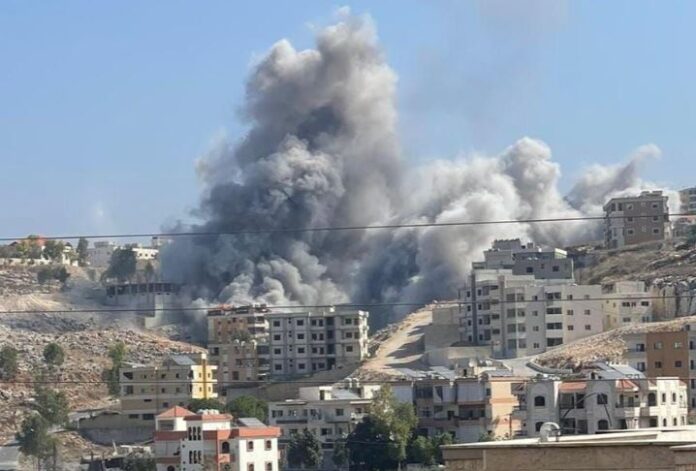The Israel Defense Forces (IDF) revealed that it has carried out more than 70 covert raids against Hezbollah positions in southern Lebanon since the conflict with the group escalated last year. These operations, primarily conducted by special forces, have targeted Hezbollah’s tunnel networks, weapon caches, and strategic sites, resulting in the destruction of numerous military assets that could have been used against Israel.
According to the IDF, troops successfully reached around 1,000 Hezbollah sites, some located several kilometers beyond the border, operating in tunnels, bunkers, and other fortified positions. These sites were often concealed within Lebanese villages and forested regions, making the missions highly complex. The raids were conducted without direct clashes with Hezbollah forces, partly due to Israel’s earlier success in pushing back Hezbollah’s elite Radwan force from the border zone.
IDF assessments suggest that thousands of Hezbollah fighters, along with 500 Palestinian Islamic Jihad operatives trained by Hezbollah, were stationed in southern Lebanon, poised to attack Israel. Anticipating such an invasion, the IDF reinforced its defenses in the north and launched multiple air and ground strikes against Hezbollah forces along the border.
The special forces raids, which sometimes lasted several days, resulted in the recovery of various weapons, including assault rifles, RPGs, and anti-tank missiles. Despite recovering only a fraction of Hezbollah’s arsenal, the IDF demonstrated its ability to neutralize significant elements of the group’s military infrastructure.
In addition to the raids, the IDF recently launched ground operations in southern Lebanon with the goal of dismantling Hezbollah’s infrastructure in the border area. Unlike the covert commando raids, these operations involve larger forces and aim to thoroughly destroy Hezbollah’s tunnel networks and other strategic sites. The military has emphasized that these operations are limited and focused, with no plans to remain in southern Lebanon long-term.
IDF officials hope that the strikes against Hezbollah, which have reportedly decimated the group’s leadership, could shift the power balance in Lebanon, allowing the government to regain control over southern regions previously dominated by the Iran-backed militia. However, Hezbollah’s rocket and missile capabilities remain a concern, as evidenced by recent rocket barrages on central Israel.
The IDF has made it clear that the goal of its operations is not to completely eliminate Hezbollah’s missile stockpiles but to weaken the group’s ability to launch attacks on Israel, while bolstering defenses and surveillance along the border to prevent future incursions.



